Military psychiatrist explains dearth of clinical support for war veterans in Tasmania
A military psychiatrist has explained how he himself struggled to get help, upon returning from Afghanistan, from professionals who understood what he was going through.
Police & Courts
Don't miss out on the headlines from Police & Courts. Followed categories will be added to My News.
A TASMANIAN military psychiatrist has explained how he himself struggled to get help for depression upon returning home from a tour in Afghanistan.
Jonathan Lane, giving evidence before the Royal Commission into Defence and Veteran Suicide in Hobart on Thursday, said he couldn’t find help from a professional who understood what he was going through.
He said the Australian Defence Force had a lengthy dearth of psychiatrists, meaning there wasn’t the expertise available to help veterans – a problem compounding the fact there were no inpatient mental health services for veterans in Tasmania.
“When I came back from Afghanistan, just before Christmas in 2013, I was quite depressed and I struggled to get help for myself as a person who’d had those experiences,” he said.
“One of the biggest problems was trying to get the psychiatrist I’d seen to understand what I was going through or what I felt was wrong with me – I couldn’t explain it very well.”
Dr Lane said the experience in itself was depressing, because if a trained psychiatrist couldn’t get the help they needed, “how hard was it for everyone else?”
He said in Tasmania, there was a lack of qualified psychiatrists – and that when he’d returned from duty, he himself was getting “hammered” by the “sheer number of referrals for people looking for clinical treatment”.
“I still get at least three referrals a week now, and this is the problem, because there’s no way I can see and meet the demand,” he said.
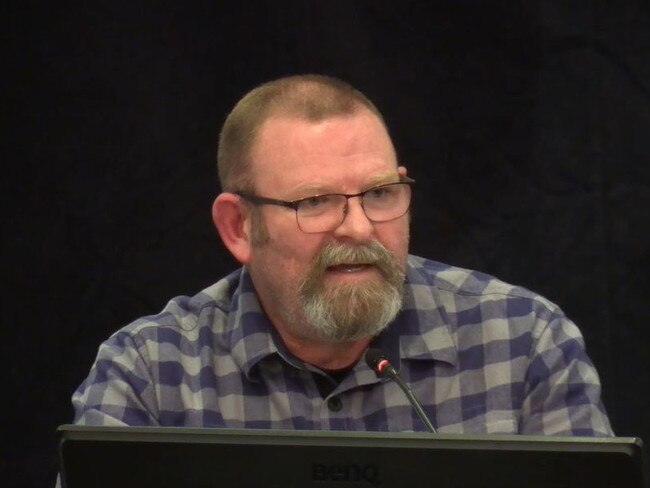
Dr Lane said he ended up developing a group program in Hobart to fill the gap.
He noted that three out of four veterans who’d sought help had dropped out, adding many clinicians didn’t have the “lived experience” of what veterans had gone through.
“In regional areas, there are so many silos and gaps that people fall through.”
How lone RSL pokie spot is helping Tassie veterans
RSL Tasmania says only one of its sub-branches still has pokie machines – but to remove them would also mean losing a full-time veterans’ advocate.
A panel of senior RSL Tasmania heads gave evidence on Wednesday before the Royal Commission into Defence and Veteran Suicide’s hearings in Hobart.
The panel spoke at length about plans to establish “veterans’ hubs” in both Hobart and Launceston – facilities that would provide services and outreach to veterans, while also generating income for the RSL by leasing out facilities and renting out accommodation.
Barry Quinn, RSL Tasmania’s state president, said only one sub-branch – out of 43 statewide – still had pokies.
However, he said because the sub-branches were incorporated organisations, “we can’t dictate to them how they generate their income”.
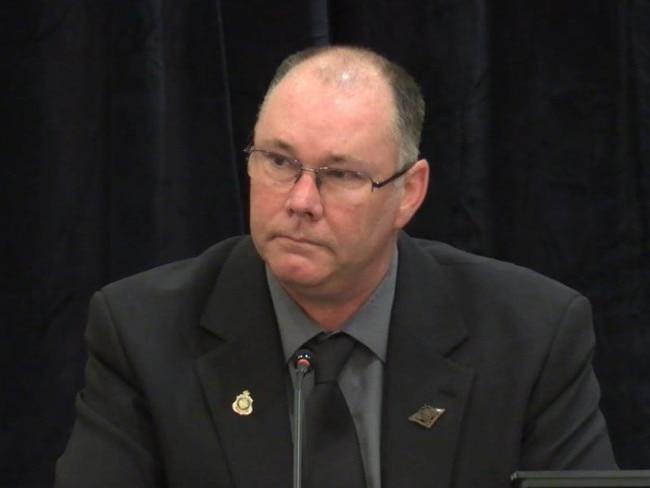
John Hardy, RSL Tasmania’s CEO, said the matter of funding the sub-branches via pokies was “a difficult question”.
“We have very few when you think that we’ve got 43 sub-branches. We’ve got one that does,” he said.
“However it has to be said that one sub-branch also provides a full-time advocate on the funds raised. So if we take the pokie machines, get them all out, that’s fine, but what will be the downstream impact of that? Because now we’ve got one less advocate to deliver services.
“I know it’s not the perfect scenario.”
Mr Hardy added the “worst way” to get someone off an addiction was to go “cold turkey”, so “we have to think of other ways”.
He said providing mental health support for veterans was “really expensive” and that RSL Tasmania currently had a working deficit of about $125,000.
“Currently, we burn about $150 to $170,000 a year on providing these (veteran) services,” he said.
“We understand that most organisations are surviving off grants. It’s not the way forward, the grant machine, we’ve got to find a better way. We believe the Veteran Hub gives us a partial way.”
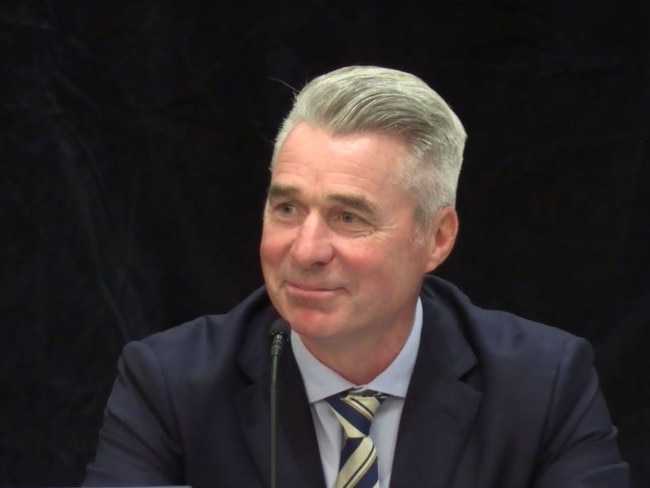
He said the project was based on a “hub and spoke” model, where the hubs were based in the two city centres, but had spokes delivering services in regional Tasmania.
According to its website, the Devonport RSL sub-branch operates poker machines from its venue.
The royal commission hearing in Hobart is continuing.
Royal Commission hears of ‘inadequate’ support for veterans - August 2
EIGHT per cent of Tasmanian veterans have developed a suicide plan, but the state doesn’t have a mental health service to help them.
On Tuesday, Minister for Veterans’ Affairs Guy Barnett gave evidence on day one of the Royal Commission into Defence and Veteran Suicide’s hearings in Hobart.
Mr Barnett agreed the veteran community in Tasmania now stood at 17,515, according to data from the most recent census – far higher than the estimated population of 10,500.
Mr Barnett also said an RSL survey of 400 members, which the Tasmanian government funded in 2019, showed over the prior 12 months, one in two had suffered a mental health condition, one in five had suicide ideation, eight per cent had developed a suicide plan, and two per cent had attempted suicide.
“That sort of information is very concerning to me, and I know to the RSL and to the community,” he said.
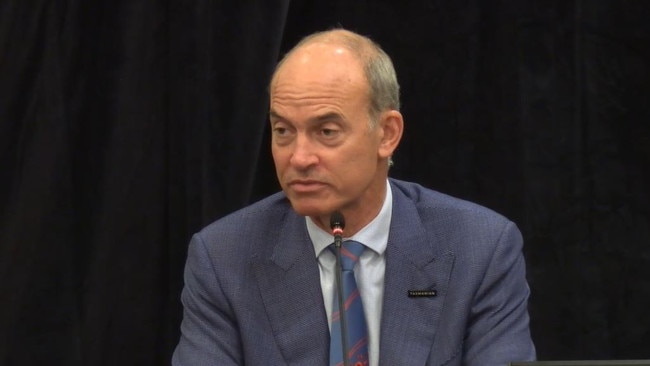
He said there was not adequate mental health support for the state’s veterans, and agreed with counsel assisting the royal commission, Erin Longbottom QC, that mental health was an issue disproportionately affecting Tasmanian veterans.
However, Mr Barnett said funding the mental health and wellbeing of veterans wasn’t the Tasmanian government’s specific responsibility – outside the state’s hospital system and emergency services.
He said that was a Commonwealth responsibility, noting there was no emergency or acute mental health care provided for veterans in Tasmania.
“Some of our veterans have to go to Victoria for care, I think it’s in Kew,” he said.
“They have to be removed from their home environment in the state of Tasmania and go to another place they’re not familiar with.”
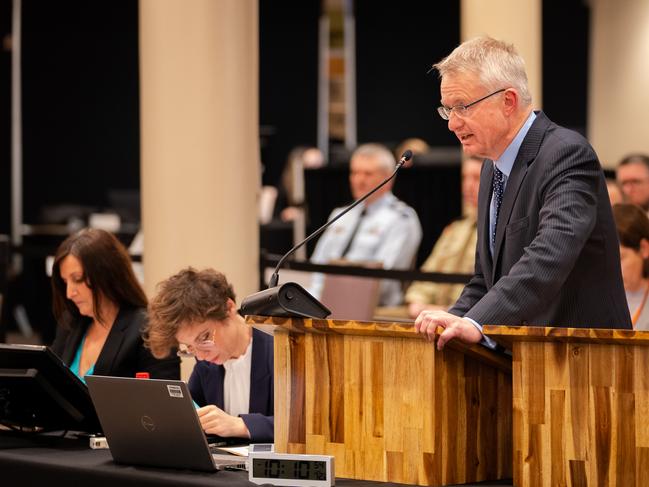
Mr Barnett said he didn’t have the number of Defence and veteran suicides that occurred in Tasmania, but heard “anecdotal feedback form time-to-time”.
“I was meeting with a veteran just last week who was clearly very upset, having been in the Defence Force and the treatment received, and she advices that two of her colleagues had committed suicide,” he said.
“It is very confronting when you have that shared with you.”
Mr Barnett said support services were provided to the veteran in question.
Mr Barnett said the state government had contributed $200,000 on an ad hoc basis to a retreat for Vietnam War veterans at Lake Sorell, where they could enjoy “very fine trout fishing”, and that Tasmania also had an unpaid Veterans Reference Group that met several times a year.
He also said $200,000 worth of health wellbeing vouchers had been made available for the state’s veterans, and noted the government also provided funding for the state’s RSL organisations.
“We do not have a lot of resources like the other states and territories, but we do the best we can with the very limited resources that we do have,” Mr Barnett said.
The royal commission hearings in Hobart are continuing.
For help in a crisis, please contact:
Lifeline: 24-hour support line: 13 11 14
Nightly text line: 0477 131 114
Suicide call back service: 1300 659 467 (24-hour counselling service for suicide prevention and mental health)
Jacqui Lambie to enter witness box for Defence royal commission
SENATOR Jacqui Lambie is expected to enter the witness box this week as the Royal Commission into Defence and Veteran Suicide conducts its Hobart hearings.
The Burnie-based Senator first made calls for a royal commission back in 2014, when she made her maiden speech to the Senate in Canberra.
In April last year, the royal commission was announced by then Prime Minister Scott Morrison – coming in the wake of a petition by Julie-Ann Finney, whose veteran son David took his own life after a career with the Royal Australian Navy.
The hearing will be held in Hobart at the Wrest Point Casino over seven days, starting on Tuesday.
Senator Lambie, who served in the Australian Army, is expected to give evidence on Friday.
Tasmania’s Veterans’ Affairs Minister Guy Barnett will also give evidence over the coming week.
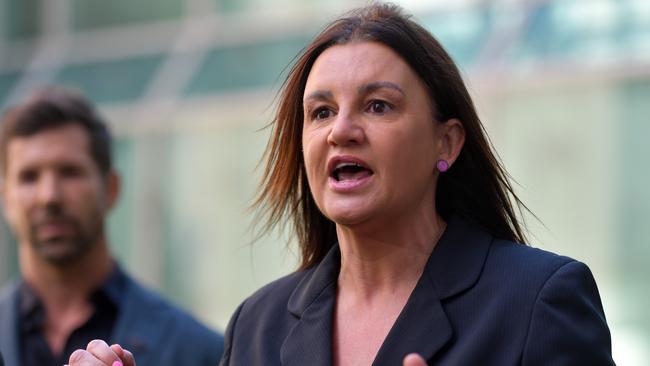
The royal commission will investigate the issue of recruitment into the Australian Defence Force, including screening processes, psychological testing and retention.
The hearing will also focus on wellbeing centres and ex-service organisations, PTSD, suicide prevention and support for families.
Commission Chair Nick Kaldas urged anyone affected by defence or veteran suicide to make a submission.
“Every death by suicide is a tragedy, and sadly too many serving and ex-serving Defence members still feel that there is no alternative pathway,” he said.
The royal commission has received more than 1900 submissions and held 162 private sessions.
The Hobart hearing will be the last public hearing before the royal commission hands its interim report to the Governor-General on August 11.
The hearing is open to the general public, with anyone wishing to attend required to register.
If you or a loved one is struggling, further support is available:
Lifeline Australia – 13 11 14
Beyond Blue – 1300 22 46 36
Rural Alive and Well – 1300 4357 6283
Kids Helpline – 1800 551 800




